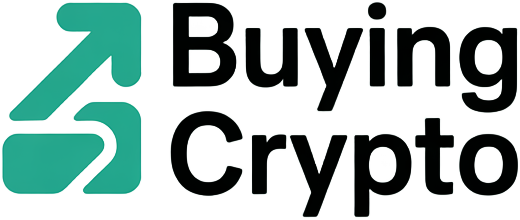Crypto onboarding remains one of the most critical—and challenging—aspects of user experience in the blockchain sector. As platforms compete for mainstream adoption, a frictionless crypto onboarding UI is no longer optional; it’s the baseline. Recent trends show that users expect intuitive flows, educational support, and accessibility across devices from day one. Drawing from expert research and real-world case studies, let’s break down the top 5 best practices that define the gold standard in crypto onboarding design today.

Simplifying Entry: Streamline KYC and Account Creation with Progressive Disclosure
The first hurdle for most new users is Know Your Customer (KYC) verification—a process notorious for abandonment rates. The best onboarding design in crypto leverages progressive disclosure: only asking for essential information at each step, instead of overwhelming users with lengthy forms upfront. This approach has been adopted by leading exchanges like Coinbase and Bison, resulting in higher completion rates and less user frustration. By breaking down KYC into bite-sized tasks, platforms can reduce cognitive load while still meeting regulatory requirements.
Empowering Users: Clear, Contextual Tooltips and Microcopy
Crypto concepts—from private keys to gas fees—can be intimidating for newcomers. Integrating clear, contextual tooltips and microcopy throughout the onboarding UI is crucial for demystifying jargon. Instead of generic help icons, effective UIs surface concise explanations exactly where confusion might arise. For instance, when users set up a wallet or choose between transaction options, inline tooltips clarify terms without disrupting flow.
Transparency & Motivation: Visual Progress Indicators
Nobody likes feeling lost during sign-up—especially when dealing with sensitive financial information. That’s why top-performing crypto apps use visual progress indicators. Whether it’s a stepper bar or checklist, these elements provide real-time feedback on what’s completed and what’s next. According to recent UX studies cited by Page Flows and ProCreator Design Agency, visible progress can boost task completion by up to 20%—a significant lift in a competitive market.
Top 5 Best Practices for Frictionless Crypto Onboarding UI
-
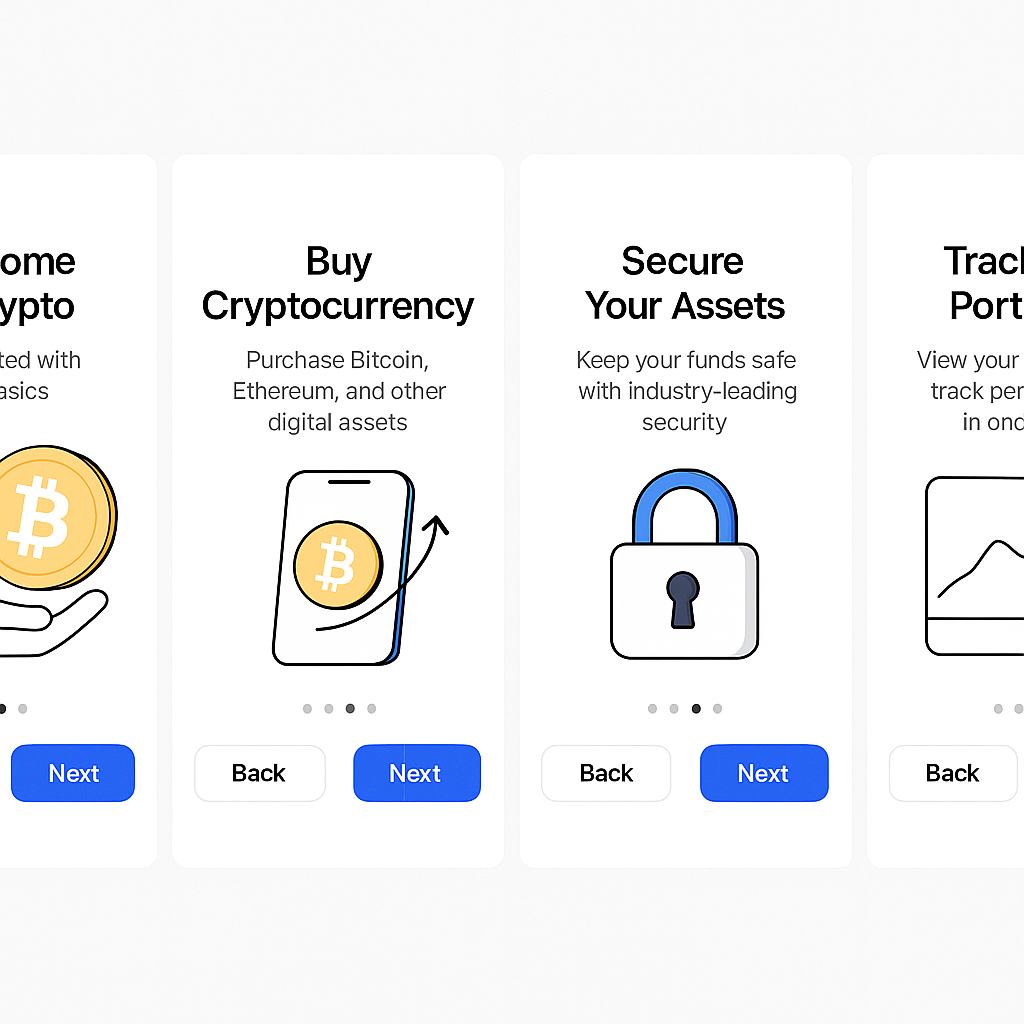
Streamline KYC and Account Creation with Progressive Disclosure: Minimize user drop-off by requesting only essential information upfront, revealing additional fields as needed. This approach reduces cognitive load and increases completion rates by up to 30% (source: UX research).
-
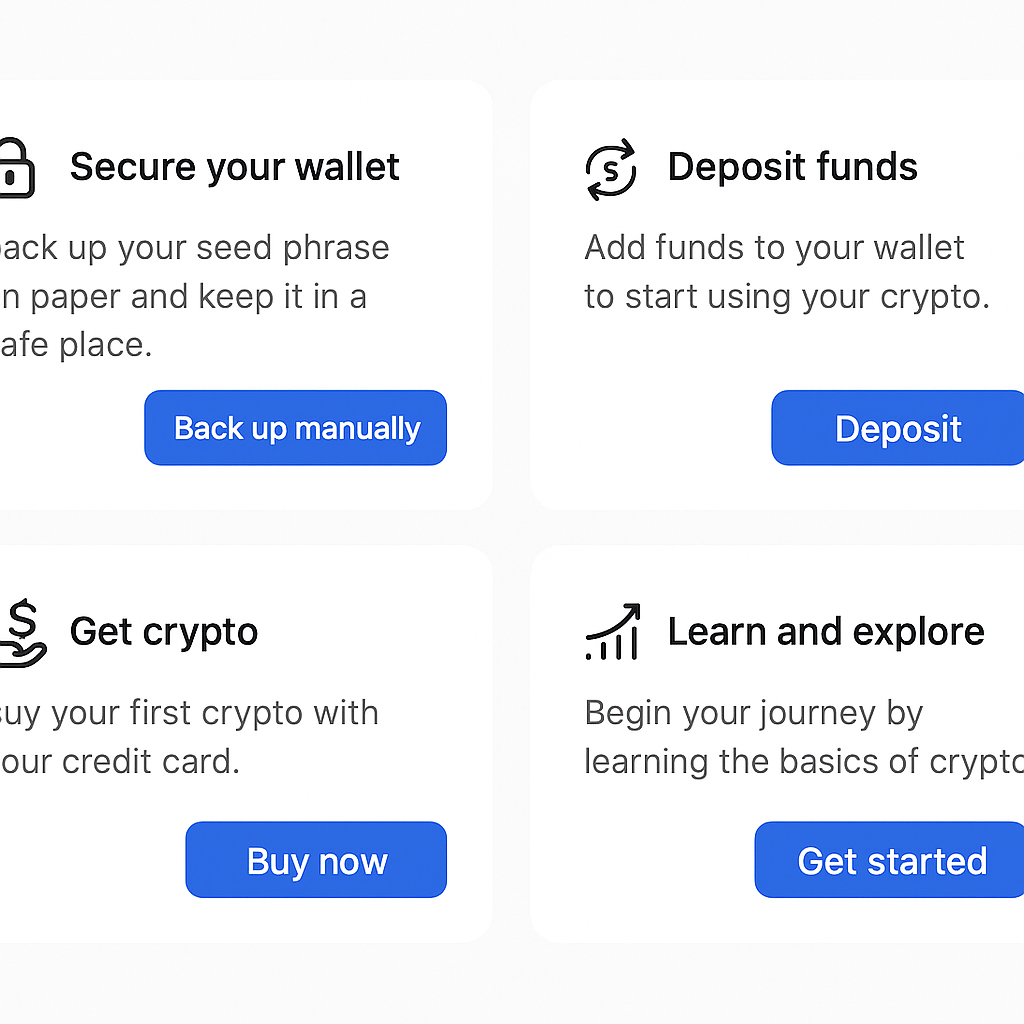
Use Clear, Contextual Tooltips and Microcopy to Explain Crypto Concepts: Integrate concise, jargon-free explanations directly within the UI. Well-placed tooltips and microcopy boost user understanding and confidence, especially for crypto newcomers.
-
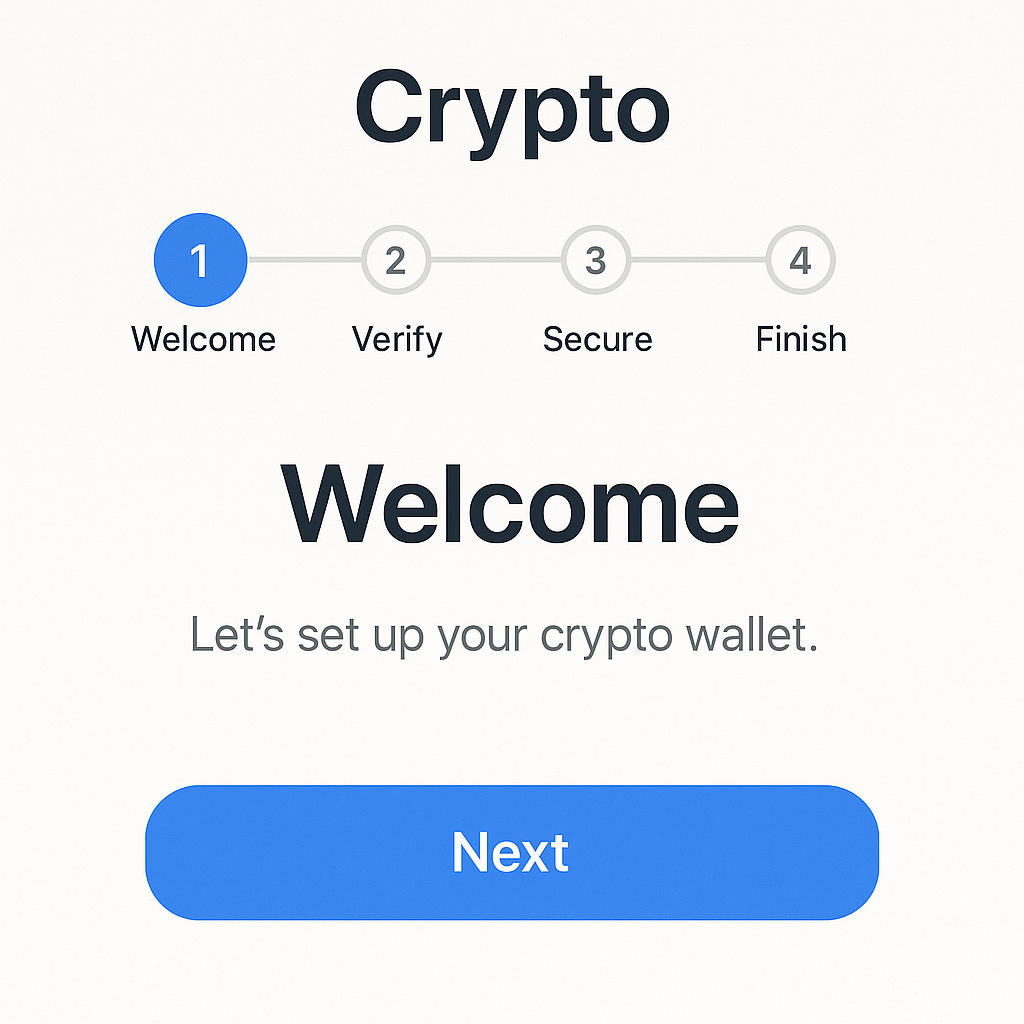
Incorporate Visual Progress Indicators Throughout the Onboarding Flow: Displaying a step-by-step progress bar or checklist helps users track their journey, reducing anxiety and abandonment rates by providing a sense of control.
-
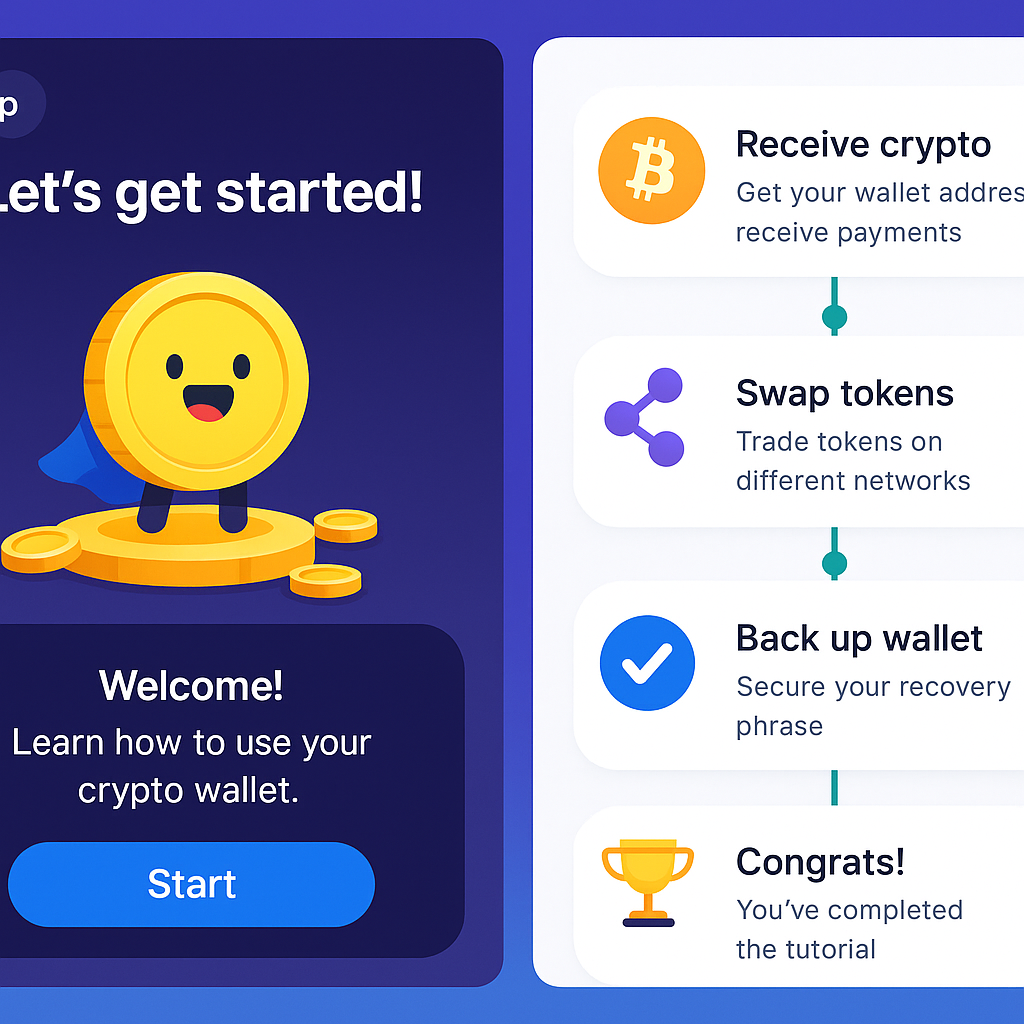
Offer Interactive Walkthroughs or Gamified Tutorials for First-Time Users: Engage users with hands-on guides or gamified elements, which have been shown to improve retention and comprehension of complex crypto features.
-

Prioritize Mobile-First, Responsive Design with Accessible UI Elements: Ensure seamless experiences across all devices by adopting a mobile-first approach and adhering to accessibility standards, making crypto onboarding inclusive for everyone.
This curated approach not only streamlines entry but also builds trust—a key ingredient in converting skeptical first-timers into loyal users.
Making Learning Engaging: Interactive Walkthroughs & Gamified Tutorials
Crypto onboarding shouldn’t be a guessing game. Platforms that offer interactive walkthroughs or gamified tutorials empower users to learn by doing—without risking real assets. Well-designed walkthroughs guide first-time users through wallet creation, trading basics, and security best practices, often using simulated transactions or reward-based tasks. This approach not only reduces anxiety but also increases retention: studies from UXCam show that apps with gamified onboarding see up to 50% higher user engagement in the first week.
Gamification isn’t just a buzzword here—it’s a proven strategy to bridge the knowledge gap. Crypto exchanges like Bitfinex and learning-focused apps such as Coinbase Earn have set the standard by rewarding users for completing onboarding milestones. These micro-incentives encourage exploration and help users internalize key concepts before they ever make their first trade.
Design for Everyone: Mobile-First, Responsive, and Accessible UI Elements
The next billion crypto users will onboard via mobile—often on devices with limited screen real estate and varying network conditions. That’s why mobile-first, responsive design with accessible UI elements is non-negotiable. Leading platforms prioritize touch-friendly controls, scalable typography, high-contrast color schemes, and WCAG-compliant layouts to ensure usability for all.
This accessibility focus isn’t just ethical; it’s strategic. A recent report from CRADL highlights that platforms optimizing for mobile accessibility see lower drop-off rates and broader demographic reach—especially in emerging markets where smartphones are primary devices.
The Data Behind Frictionless Crypto Onboarding UI
| Best Practice | Impact on User Experience 📈 |
|---|---|
| Progressive KYC Disclosure | -15% drop-off during sign-up |
| Contextual Tooltips & Microcopy | +30% increase in user comprehension |
| Visual Progress Indicators | -20% perceived effort in onboarding tasks |
| Interactive Walkthroughs/Gamification | +50% week-one engagement boost |
| Mobile-First Accessible Design | -18% abandonment on mobile devices |
Bringing It All Together: Consistency Is Key to Trust & Growth
The most successful crypto apps don’t just cherry-pick one or two best practices—they combine all five for a truly frictionless experience. Streamlining KYC with progressive disclosure lowers barriers to entry; clear tooltips build confidence; progress indicators reduce uncertainty; interactive tutorials make learning stick; and mobile-first accessibility guarantees no one gets left behind.
User expectations are evolving fast, fueled by cross-industry benchmarks from fintech and gaming. Crypto platforms that invest in smart onboarding design today will not only capture market share but also foster long-term loyalty as mainstream adoption accelerates.
If you’re building the next wave of blockchain products—or simply want your project to stand out—start with these five pillars of seamless crypto onboarding UI. The data speaks for itself: less friction means more trust, more conversions, and ultimately, more users ready to explore the future of finance.
